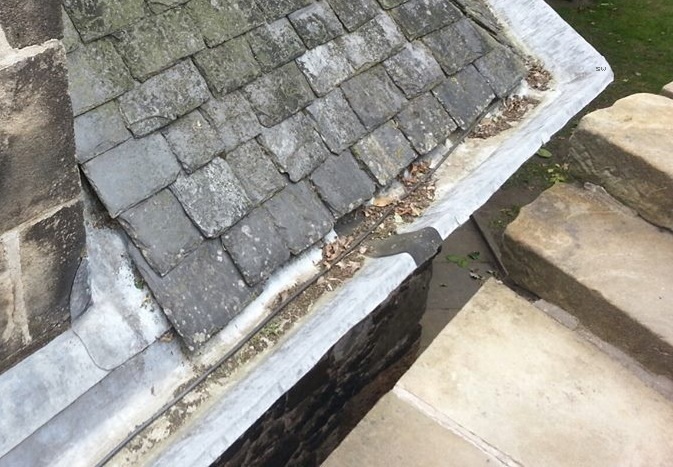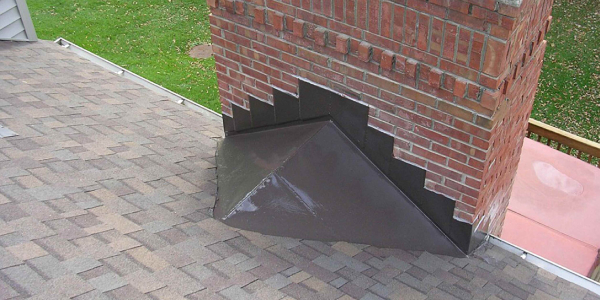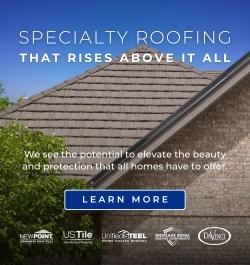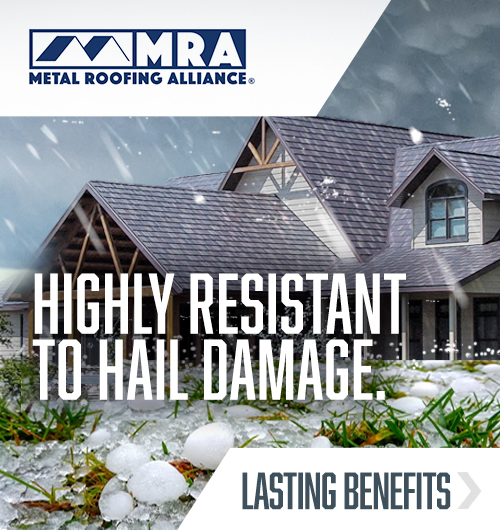Taking Stress Out of Spring Roof Replacement Projects

MRA cautions homeowners: For peace of mind, don’t spend a cent without asking essential questions first.
After a year filled with anxiety, the last thing homeowners need is anything else that adds to their stress. But as a result of extreme weather events experienced by many regions, having to worry about the roof overhead is especially unwelcome these days.
That’s why, as homeowners begin to prioritize their spring home improvement projects, the experts at the Metal Roofing Alliance (MRA) say the best method for ensuring peace of mind and long-term satisfaction starts with asking installers the right questions, well in advance of when a replacement project starts.
“Replacing a roof is a major expense and it has a big impact on how a home looks and performs,” said Renee Ramey, MRA executive director. “Because there are so many variables, it can be stressful and anxiety-producing, causing homeowners to feel uneasy about whether they are making the right choices. But it doesn’t have to be that way: asking good questions goes a long way towards making a worry- and hassle-free decision.”
According to MRA, the first step is finding a reputable, qualified pro who will conduct a thorough and honest evaluation of your roof’s current condition and determine whether replacement is necessary. From there, key questions before making a roof replacement investment include:
1 - Based on my region, what are the best options for protecting my home?
To get the best roof, plan for the worst. Hurricanes, tornadoes, wildfires, snow, hail, ice, driving rain and winds: consider the challenges in your region and make sure your roof is designed to withstand them. The ultimate security comes from knowing your roof offers maximum protection for whatever Mother Nature throws at it, not just hoping it will. Be sure to consider needed accessories such as snow guards, heavy duty gutters and waterproof underlayment that can provide extra security and avoid added hassles and expenses later on.
2 - What are the ongoing maintenance needs and requirements?
No matter what the material, all roofs typically look great when they are brand new. But certain materials such as asphalt, shake and clay can be particularly prone to maintenance issues such as moss, algae and fungus especially in wet and humid climates. Left unchecked, these issues are at best unsightly and at worst, shorten the lifespan and cause serious damage to a roof. Regular, professional treatments can be expensive and environmentally harmful. Ask about low maintenance options such as metal roofing that often require just plain water and gentle soap to keep looking great.
3 - Beyond warranties, what credible, third party ratings can verify performance?
Warranties are very important, including both material and labor. Beyond that, make sure a roof is rated by independent, credible sources for fire and hail resistance, as well as energy efficiency. In the U.S., roofs that carry a Class A fire rating and are an ENERGY STAR qualified “Cool Roof” add up to great peace of mind when it comes to wildfire protection and maximizing efficiency in both cold and hot weather. Be sure to ask your installer about proper insulation and underlayments designed to meet or exceed regional building codes for ongoing savings and protection.
4 - What are my choices for a strong, yet structurally sound, roof?
There are lots of strong roofing options out there, including slate and clay, but these heavyweights may require additional reinforcement (and expense) of a roof’s underlying structure. Snow and ice loads can add significantly to that weight. Homeowner who want a similar look may want to opt for metal roofing that can mimic those materials, but is much lighter per square foot to help avoid the need for additional structural reinforcements.
5 - Who is the manufacturer and what is their reputation?
For roofs designed to last and deliver carefree performance and protection, quality matters. The cheapest bid is often not the best deal. Learn more about the material being proposed, where it is sourced and whether the manufacturer has a solid reputation and will stand behind their products. Be sure they use high quality techniques and materials. For example, high tech paint and coatings can make a huge difference in the durability, performance and ongoing maintenance of a roof. Ask for details and verification from your installer regarding the material specs being proposed.
6 - How do I choose the right style for my home?
Ideally, a new roof will last a very long time, so choosing the right look matters. Again, it is important to consider regional conditions and never prioritize design over performance. For example, even if you love the look of wood shake, do not use it in a wildfire prone area. Instead, choose a material that can mimic the look but won’t compromise on protection. Try on colors and different designs before deciding: use online tools such as the MRA visualizer https://mra.renoworks.com to see how a new roof will actually look on a home.
7 - What are the most sustainable roofing choices?
Consider the lifecycle of a roof, from tear off to manufacturing to longevity. Some materials, like metal roofing, can be installed right over an older asphalt roof to avoid tear off and landfill waste. They also can be 100% recycled at the end of their long life and last up to three times longer than other roofing types. In addition, quality metal roofs with high performance coatings offer among the best energy efficiency of any roofing material.
For more information and a comprehensive Buyer’s Guide available as a free download, visit www.metalroofing.com
About Metal Roofing Alliance (MRA)
Representing the residential metal roofing industry in the United States and Canada, the Metal Roofing Alliance (MRA) was formed to help educate consumers about the many benefits of metal roofing. The main objective of MRA is to increase awareness of the beauty, durability and money-saving advantages of quality metal roofing among homeowners, as well as to provide support to the residential metal roofing industry. For more information, visit MRA at www.metalroofing.com.









Comments
Leave a Reply
Have an account? Login to leave a comment!
Sign In